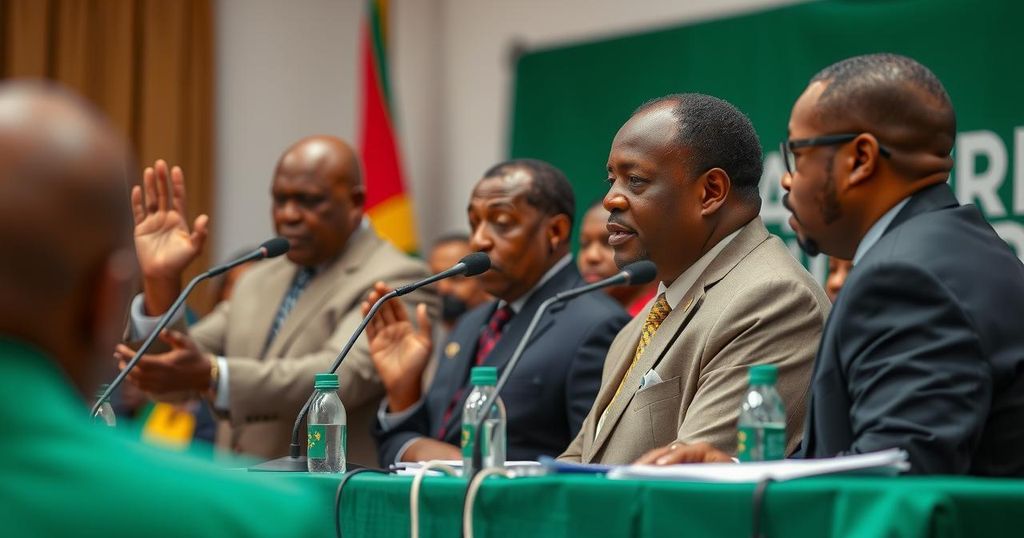Mozambique is set to inaugurate a new parliament amid protests over disputed election results, with opposition leader Venancio Mondlane calling for demonstrations against perceived electoral fraud. Renamo and MDM are boycotting the session, emphasizing the need for electoral integrity. The unrest has resulted in significant violence and economic impact, as Mondlane insists on peaceful resistance against the new government.
Mozambique is preparing to swear in a new parliament on Monday amidst a backdrop of significant unrest following a controversial election in October. The opposition claims that the election results were manipulated to favor the ruling Frelimo party, which has held power for the past fifty years. In response, opposition leader Venancio Mondlane has called for peaceful protests leading up to the presidential installation of Daniel Chapo, asserting his belief that he legitimately won the presidential vote.
The tensions have been exacerbated by the announced boycott of the parliamentary session by two opposition parties, Renamo and the MDM, both of which expressed their dissatisfaction with the electoral process. Renamo, having secured 28 seats, and MDM, with 8 seats in the 250-seat assembly, accused the government of disrespecting Mozambican voters’ will by proceeding with the inauguration under disputed circumstances. Renamo spokesman Marcial Macome criticized the inauguration as a violation of the principles of democracy, emphasizing that many citizens were denied a “free, fair and transparent” election.
Mondlane, returning from two months of exile, urged his supporters to undertake a national strike and highlighted the need to express dissent against the perceived injustice of the election outcome. He proclaimed that the assembly’s imminent oath-taking would represent a betrayal of the people’s aspirations. The unrest following the election has led to significant violence, with reports estimating around 300 casualties, involving both demonstrators and law enforcement.
The political landscape in Mozambique has been fraught with tension following the October elections, where the opposition faced allegations of electoral fraud. The governing Frelimo party’s dominance has stoked frustration among voters who feel their voices are not adequately represented. The protests and subsequent unrest reflect the broader issues of political dissatisfaction in the country, wherein the opposition claims widespread disenfranchisement. The situation has escalated to violent confrontations, which have had various repercussions on Mozambique’s economy.
In conclusion, Mozambique stands at a crucial juncture as the new parliament prepares to assume its responsibilities amidst significant opposition protests and claims of electoral manipulation. The dissatisfaction expressed by opposition groups demonstrates the deep divisions within the country’s political framework and the urgent calls for respects to democratic principles. As tensions remain high, the implications for governance and civil society will be closely monitored in the coming days.
Original Source: www.voanews.com






